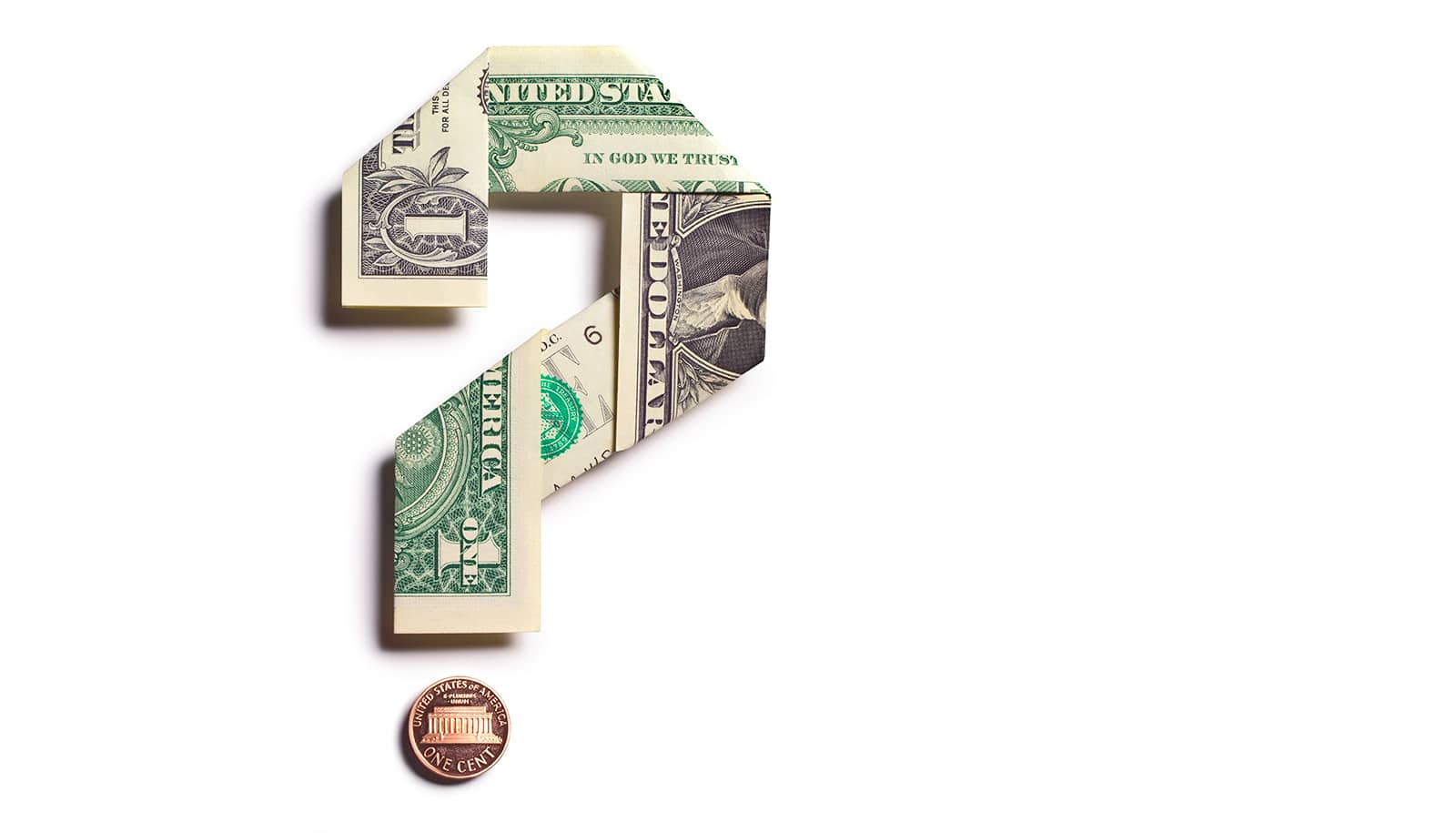
A Forever 21 store advertises sales ahead of the Black Friday sales on November 20, 2019. (Credit: Hollie Adams/Getty Images )
How will holiday shopping be different this year?
Experts have tips for your holiday shopping, including how to save some money, what'll be different this year, and what to get Gen Z.
With Black Friday and Cyber Monday upon us, Rutgers University experts weigh in on the holiday retail season, including how you can save money while focusing on holiday cheer:
The post How will holiday shopping be different this year? appeared first on Futurity .
What should consumers do over the next month to know they are getting a deal?
Parul Jain, associate professor of professional practice, Rutgers Business School: Black Friday deals may be misleading (and have a massive time cost) and Cyber Monday deals may offer better value.
A general consensus is that comparison shopping is needed, with a complete check on internet prices. It would be helpful to reduce the budget and focus on reduced lists. Additionally, everyone should make lists and avoid costly items. Also, while name brands are popular, it is important to assess quality relative to price. Plus, some brand items may be cheaper because of offbeat colors.
Perhaps it would be more prudent to focus on the “holiday spirit ” rather than “holiday shopping.” Some would suggest waiting for after-Christmas sales and delaying purchases until the price is right.
Where does a consumer’s budget fit in? How will inflation come to play?
Jain: Household budgets do appear stressed, but there may be some leeway here. Those looking to shop for specific electronic items (such as PlayStation 5) are finding restricted availability .
Some are mindful of inflation: There will be a search for steep Black Friday sales for clothing, etc. Gift cards are getting popular since they fix the dollar amount and allow the recipient to pick their items and makeup up any deficits. “Secret Santa” is coming back, so people can cope with limited budgets amid sticker shock.
In short, some perceive inflation as not a major concern since people will buy what they want to get.
Holiday shopping has already begun. How will consumers’ shopping and spending habits differ from years past?
Kristina Durante, marketing department vice chair and professor, Rutgers Business School: Consumers were geared up for holiday cheer this year and spending started early. On the one hand, consumers are concerned about inflation and spending too much. On the other hand, they are more excited for the holidays than in prior years. Consumer eagerness for the holidays this year comes from the back-to-normal feel compared with pandemic days and wanting to control holiday spending and wrap up early before prices change again.
Even though consumers are worried about inflation, spending may not change much from last year and may increase. Retailers have met consumers’ desire to jump-start the holidays with low prices and earlier-than-normal Black Friday-like sales. Now that restrictions are lifted, consumers may spend more on travel and wellness services. Some consumers, especially those concerned about the economy, may look to other gifts that fulfill a household need like food, clothing, linens, and electronics.
Are consumers shopping in store or online? What are they looking for?
Durante: E-commerce will likely dominate as usual, but many consumers will want to get into the holiday spirit with shopping experiences at brick-and-mortar stores. Word on the street is that more consumers are expected to have real trees this year, which signifies that consumers want to be fully back to normal and are more likely to be out and about.
Retailers are hoping for the best but bracing for the worst. Sales started early, prices on most items have never been lower, and inventory is high. This means that sales should continue, with Black Friday now a global event no longer reserved only for US consumers after Thanksgiving. More retailers will also reach consumers where they spend most of their time: on their phones.
Unlike a year ago, when we saw empty shelves and disappointed customers, we’re now seeing too much inventory and companies turning to early sales to get rid of them. Why is this happening and what impact will that have?
G. Tony Bell, assistant professor of professional practice, Rutgers Business School: Last year, we saw retailers and their suppliers operating in a just-in-time environment by minimizing their inventories as much as possible without sacrificing service. This was an overall management strategy aimed at receiving goods as close as possible to when those goods are needed.
In these post-pandemic months, there is a sudden and significant increase in consumer demand for goods of all kinds. Most retailers anticipated this, yet overcompensated by over-ordering across all categories of products to ensure product availability for the end consumers.
Retailers did not fully consider the significant shift from goods to services, which resulted in several categories being overstocked and the current activity we see with early holiday deals, massive markdowns and canceled orders.
From a customer perspective, discounts are great when we see price increases due to inflation. But retailers must consider all of the supply chain risks that exist today.
How will Gen Z approach the holiday season? What should parents keep in mind for gift giving?
Mark Beal, assistant professor of professional practice, School of Communication and Information: Gen Zers will conduct research before making a purchase during the holiday season to find the best price, gain the greatest value and learn if a company or brand is purposeful . As the purpose generation, Gen Z aspires to become customers of brands who are contributing to a better world via purposeful actions and initiatives.
They are digital natives who are very comfortable purchasing holiday gifts from the palm of their hand via interactive content on TikTok, Instagram, or an app. They also prefer brands that leverage technology and empower this cohort to personalize and customize a gift purchase.
While Gen Z embraces technology, they also have a passion for retro products. Secondhand clothing stores, vintage music T-shirts, vinyl records, and other nostalgic products strike a chord with Gen Z.
They can never get enough holiday gifts they can leverage on their mobile devices, whether digital gift cards for their favorite brands and retailers or subscriptions to audio, video, media, and even educational content companies.
Share this article:
This article uses material from the Futurity article, and is licenced under a CC BY-SA 4.0 International License. Images, videos and audio are available under their respective licenses.


